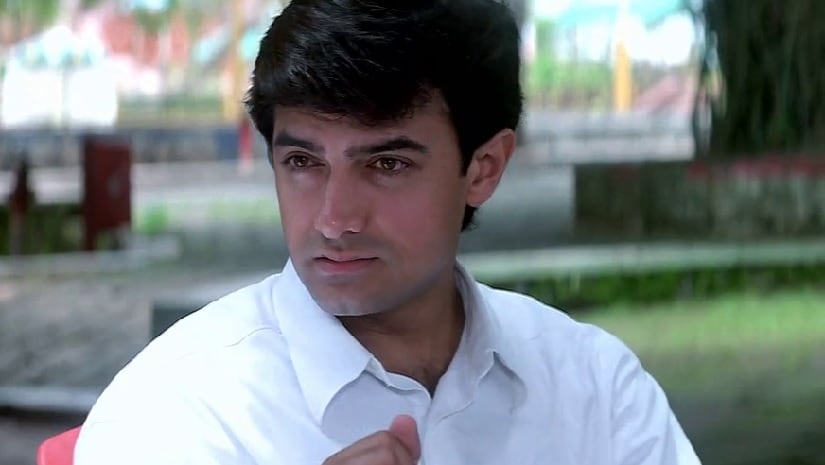When Aamir Khan starred in John Mathew Matthan’s cop drama Sarfarosh, that released this day 20 years ago on 30 April, 1999, he was undergoing a transformation from a young romantic hero to the more age-sensitive character actor as we know him today. [caption id=“attachment_6538211” align=“alignnone” width=“825”]  Aamir Khan in a still from Sarfarosh. YouTube[/caption] It was his first film in a string of four during that year. Besides Sarfarosh, he also starred in Deepa Mehta’s cross border film 1947: Earth, Indra Kumar’s Mann and Dharmesh Darshan’s Mela, which eventually released in 2000. While the latter two bombed at the box office, both Sarfarosh and 1947: Earth got him critical acclaim. Sarfarosh released at a time when India and Pakistan were on the verge of the Kargil War. It revolved around ACP Ajay Singh Rathod, who vows to eliminate crime after his father is paralysed and elder brother is murdered by terrorists. From heading a special team of the Mumbai Police, assigned with the task of investigating a Naxalite attack on the Maharashtra-Andhra Pradesh border, he traces the roots of the Naxalites’ arms supply to the Mumbai underworld, and then to Pakistani infiltrators and diplomats. While the nexus was an interesting take on Pakistan’s invasion on India’s sovereignty, the film did face a few loopholes in terms of police jurisdiction. Aamir, like his character, treads uncharted territories with equal conviction and no fear of consequence. In an interview to NDTV, Aamir claimed that he wanted to support a film like Sarfarosh because it reflected the concerns of his times. Years before he kickstarted the ‘intolerance’ debate, Aamir expressed at that time that he personally faced the brunt of his Muslim identity in the early 1990s, which prompted him to take up the role of a police officer who takes charge against those minorities who threatened the secular nature of India through their divisive actions. After appearing in a slew of successful romantic comedies like Rajkumar Santoshi’s Andaz Apna Apna (1995), Ram Gopal Varma’s _Rangeel_a (1995), Raja Hindustani, Indra Kumar’s Ishq and Vikram Bhatt’s Ghulam, Aamir chose to do a film that was both more urgent and personal. The failures of Mann and Mela, two films with familiar directors, only made him more certain about pursuing characters that were part of socially conscious films, rather than those that only played to his star image. This drift coincided with his decision to boycott popular awards, a move that he gained heavily from by establishing his image as a no-nonsense actor who uses his star power to drive cinema as an agent of change, rather than just selling a product that accentuates his star appeal. All the applause he got for his tough-yet-vulnerable cop in Sarfarosh paved the way for the launch of his production house through Ashutosh Gowariker’s period drama Lagaan in 2001. It married sports with the theme of colonial oppression, and was followed by films with a similar mix, like Ketan Mehta’s Mangal Pandey, Rakeysh Omprakash Mehra’s Rang De Basanti and Kunal Kohli’s Fanaa. All these films spoke to the collective consciousness of the nation but at the same time portrayed Aamir as a character different from his previous film, unlike a John Abraham of today, whose spy thrillers/cop dramas are all rather homogeneous (PS: He has been signed for _Sarfarosh 2_ ). The positive outcome of Sarfarosh (which also won a National Award for Best Popular Film Providing Wholesome Entertainment) established Aamir’s modus operandi of doing one film at a time and ensuring that it offers both socially relevant messaging and wholesome entertainment. While Sarfarosh had its tender moments in Jatin-Lalit’s timeless songs like ‘Hoshwalon Ko Khabar Kya’, ‘Iss Deewane Ladke Ko’ and ‘Jo Haal Dil Ka’, Aamir’s romantic angle with Sonali Bendre barely added much to the central narrative of the film. In years to come, Sarfarosh will continue to be remembered for its fine central performance by a star who was all shades heroic even without the crutch of invincibility.
Sarfarosh released at a time when Aamir Khan was undergoing a transformation from a young romantic hero to the more age-sensitive character actor as we know him today.
Advertisement
End of Article
Written by Devansh Sharma
Twitter handle - @inkedinwhite see more


)
)
)
)
)
)
)
)
)



